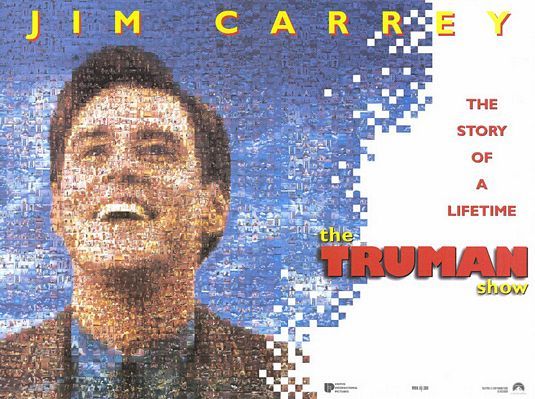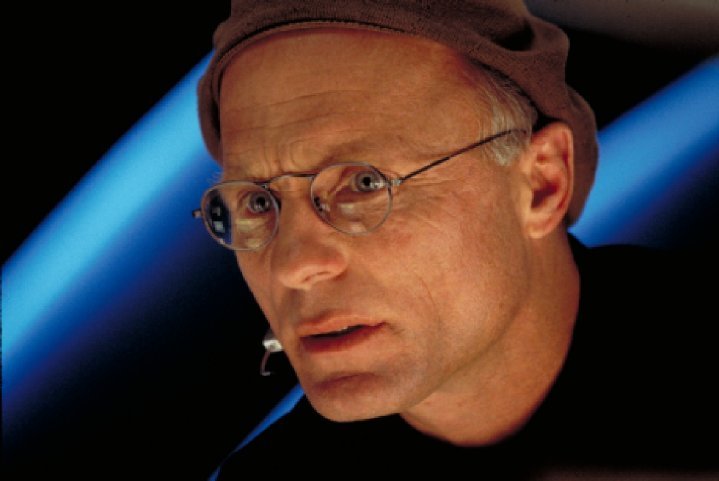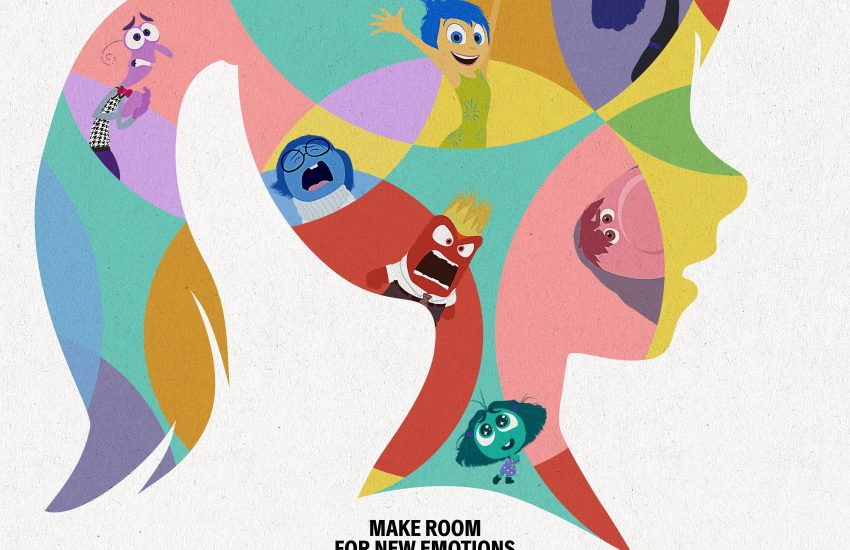Review of The Truman Show: What Deception and Control Steal from Us
ALERT: This review contains major spoilers.
There is no different between private life and public life. My life, is my life, is the Truman show. It’s a noble life. It’s all true, it’s all real. Nothing here is fake. It’s merely controlled.
– In the opening of the movie, during the actors’ interviews

The Truman Show, released in 1998, tells the story of an ordinary man named Truman, living in the fictional world of Seahaven. Now, more than 20 years since its release, this post aims to review the profound message that The Truman Show seeks to convey.
The plot of the movie is as follows:
The main character, Truman, is an ordinary man in his 30s who was born and raised in Seahaven. However, the city of Seahaven is, in fact, a set for a TV show. Everyone in the city, including Truman’s friends, wife, and parents, are hired actors, merely supporting characters in the documentary The Truman Show, in which Truman is the protagonist. One day, Truman begins to notice something suspicious about Seahaven and tries to escape to find his first love, Sylvia. The show’s creator, Christoph, attempts to stop Truman from escaping to keep the show going, but Truman eventually succeeds in breaking free from Seahaven, setting off to find freedom and love.
The theme of the classic masterpiece The Truman Show is widely recognized. It can be interpreted as Truman’s journey of leaving behind a comfortable but false world in search of the real world and true freedom. The message of this film, which advocates for a genuine life, even if it’s harder, over a fake happiness, is already well known. It shares a similar message with The Matrix, released in the 2000s. But let’s dig deeper and ask: Why should we choose difficult freedom over comfortable lies? What’s wrong with being content in a world like Seahaven or The Matrix? This post seeks to explore these questions through The Truman Show.
The movie presents a central conflict: the show’s creator, Christoph, who seeks to control everything, versus Truman, who embarks on a journey to find freedom.

Christoph directs and controls every aspect of The Truman Show—time, seasons, weather, events, and even the dialogues of the characters. He insists that Seahaven is a paradise on Earth, thoroughly binding Truman’s life to the confines of Seahaven. By instilling a deep-seated fear of the sea in Truman, Christoph effectively suppresses Truman’s curiosity about the world beyond. Christoph explains Seahaven and The Truman Show in the following way.
We’ve become bored with watching actors give us phony emotions. We are tired of pyrotechnics and special effects. While the world he inhabits is, in some respects, counterfeit, there’s nothing fake about Truman himself. No scripts, no cue cards. It isn’t always Shakespeare, but it’s genuine. It’s a life.
I have given Truman the chance to lead a normal life. The world, the place you live in, is the sick place. Seahaven is the way the world should be.
In the movie, the creators and actors of The Truman Show claim the following: “Seahaven is a slightly controlled but noble and happy world, dealing with one person’s real life.” This assertion mirrors the arguments made by real-life authoritarian figures or overly strict parents. The core of their belief is this: “I, or my group, who know the secret to a happy life, must guide someone else’s life towards happiness.”
But is Seahaven truly a paradise for Truman? Is Truman really living a normal but happy life as a human being in Seahaven?

The Truman Show critiques the deceptive nature of Seahaven. Although it appears to be a nearly perfect, controlled paradise, Seahaven is a place filled with lies and deceit. It robs Truman of the rights he is entitled to as a human being, without his consent. While Seahaven seems peaceful on the surface, its contradictions become glaringly obvious as Truman attempts to escape.
All the joys and sorrows that Truman should rightfully experience in his relationships are tainted by falsehoods, and those who are supposed to love him act solely out of self-interest. Truman’s closest companion is his wife, yet she is only dutifully playing her role. When Truman asks her a serious question about why she wants to have a child, she mechanically recites a Cocoa product placement line in response, following the cue. This scene strikes the audience as highly comical. In response to Truman’s passionate outburst of confusion—“What is going on?”—she even pulls a knife on him. When Truman’s friend Marlon shows up at the critical moment, she breaks down and hugs him, confessing, “I can’t do this anymore.” These are actions that would be difficult to imagine if she truly loved Truman.

Truman’s closest friend, Marlon, is a puppet of Christoph and one of the most crucial tools in controlling Truman’s life. This becomes evident in the scene where Marlon tries to convince Truman not to leave Seahaven. Even the heartfelt advice Marlon offers Truman is simply lines fed to him by Christoph. During an intimate moment where they sit together, reminiscing about the past, Marlon repeats Christoph’s line, “I would never lie to you.” Even the beer cans Marlon brings to share with Truman are part of a product placement.
Truman is also denied the parental love that every human deserves, as even that is controlled by Christoph. The actor playing Truman’s father resents having been “killed off” early in the show—not because he is sad to part from Truman, but because he lost his role in the show too soon. When Truman goes missing, the residents of Seahaven engage in a nighttime search for him, yet the actress playing Truman’s mother doesn’t express concern for her son. Instead, she exclaims, “My voice will give out if I keep this up!”
Do you remember the friendly neighbor and her dog, who warmly greeted Truman at the start of the movie? When Truman goes missing, they transform into a fierce hunting pair, with the neighbor saying, “We’ll bite him when we find him!” showing how quickly their facade changes.

In Truman’s life, the love of his parents, the kindness of neighbors, and the friendship with his best friend are all mere fabrications, orchestrated for the sake of TV ratings. The tearful reunion with his father, whom Truman believed to be dead, becomes nothing more than gossip fodder for The Truman Show‘s audience, manipulated by the media. While Christoph, the show’s creator, appears to care for Truman as a father would, his true goal is solely the high ratings and continued success of the show.
Escaping from this false world is no easy task. Leaving behind the place where he has lived for decades is like trying to escape from an island. Truman fights fiercely to free himself from the fabricated world of Seahaven. He evades all pursuers and finally faces his long-standing fear of water. With trauma, a raging storm, and the fear of searching for something that may or may not exist, Truman places his fate in a sailboat. Christoph, obsessed with control, unleashes a deadly storm in an attempt to stop Truman’s escape. After a difficult journey, Truman reaches the edge of the world, only to encounter a towering wall. Though he momentarily bows his head, he cautiously takes steps and finds the exit.

Escaping from this false world is no easy feat. Leaving behind the place where he has lived for decades is akin to escaping from an island. Truman fights desperately to free himself from the deceptive world of Seahaven. He evades all those who pursue him and finally confronts his long-held fear of water. With trauma, a raging storm, and the fear of searching for something that may or may not exist, he boards a sailboat. The control-obsessed Christoph unleashes a murderous storm to thwart Truman’s escape. At the end of his arduous journey, Truman encounters a towering wall—literally the edge of his world. Though he momentarily lowers his head, he cautiously takes steps and discovers the exit.

Truman could have chosen to stay in Seahaven. After learning the full truth, life in Seahaven would have been predictable, controlled, and worry-free. Much of the fear we face in life comes from uncertainty, and Seahaven has very few uncertain elements. Truman might have been able to live a very comfortable and stress-free life there.
However, the cost of such a life is the loss of his humanity. The authenticity that he should experience and enjoy as a human being would be completely stripped away. Even the love of the viewers who are watching The Truman Show is fleeting—the moment the show ends, they would switch channels and forget about him.
The issue with the controlled world presented in The Truman Show is the loss of humanity and genuine love. Control has the potential to rob a person of their right to choose and their fundamental rights without their awareness. If you find yourself in a situation where the things you deserve as a human are being taken away under some form of control—and if you have grown accustomed to it—consider, like Truman, escaping from your own Seahaven to reclaim your rights. In that journey, you will have to confront your traumas, fears, and your own Christoph. But in the end, you will face the real world.
